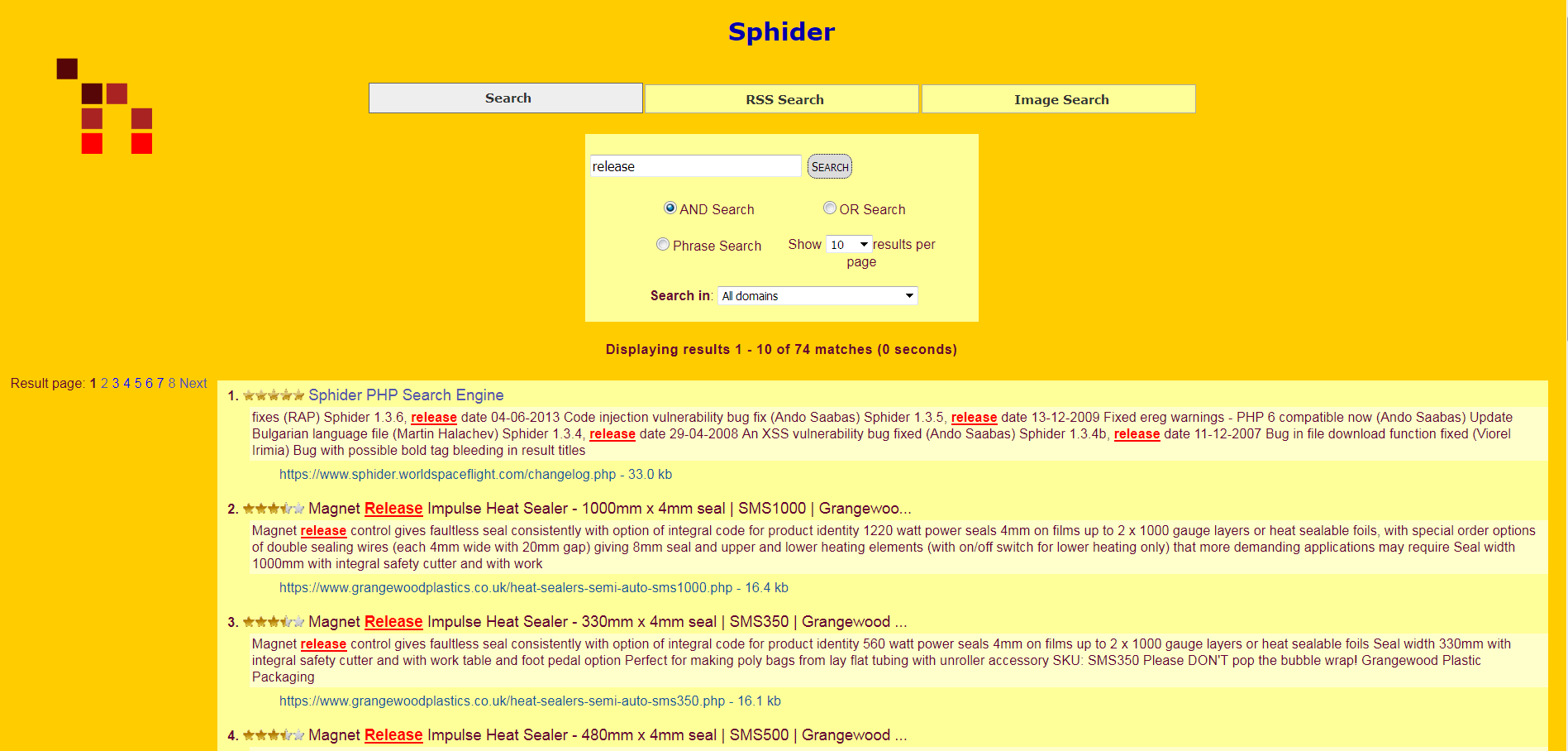Sphider comes with the ability to backup and restore your database. How well this works depends on not only the size of the database, but on your MySQL settings. The restore could restore a single record at a time, but this would be time consuming. It would be reliable, but for a larger database you could probably spend the weekend at the shore while it ran. So, to speed things up, the restore process works on blocks of records. However, this increase in speed comes with a cost. If a block or records is too big, the restore will fail. There is a way to prevent this.
First off, check to see if you might have an issue. From a command prompt:
mysqld –help –verbose –pid-file
In the results, look for “max_allowed_packet”. If the value is less than 33554432 (32M), you might have an issue. Values of 67108864 (64M) or greater and you should be good to go. The 64M is recommended, although larger won’t harm a thing! The value can be up to a maximum of 1G (1073741824).
If you need to increase the value of “max_allowed_packet”, there are two ways of doing so. The first is a permanent fix. Edit my.cnf (my.ini in Windows). In the “[mysqld]” or “[client]” section, put in “max_allowed_packet=64M”. If the line doesn’t exist, add it. Then restart the mysql service.
The second method is temporary, existing until the next time the service is restarted. Run this simple query:
SET GLOBAL max_allowed_packet=67108864
Of course, in either instance, entering larger numbers will do no harm. More importantly, you can have confidence that the backup and restore procedures will work properly.


